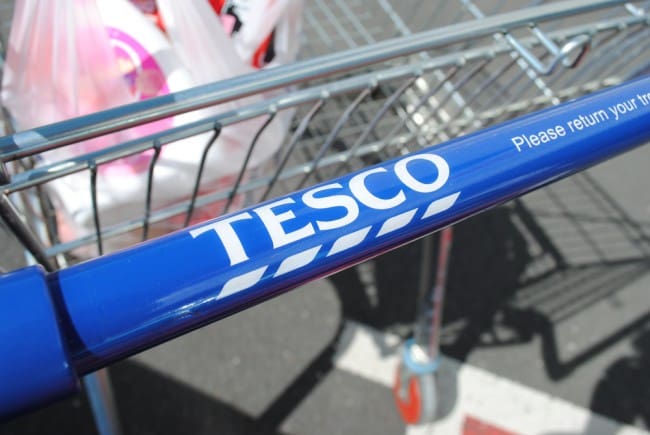The Groceries Code Adjudicator has accused Tesco of falsely inflating its profits by delaying or deducting payments to its suppliers while also billing them twice for sums owed, reports The Telegrah.
Christine Tacon, the Groceries Code Adjudicator, opened an investigation into Tesco’s breaches of the Grocery Code last February, five months after the supermarket revealed a £250m hole in its accounts.
Tesco had blamed the accounting error – which led to it being engulfed in the biggest scandal in its history – on booking income from suppliers too early.
After nearly a year the GCA has found that the supermarket “seriously breached a legally-binding code to protect groceries suppliers”.
Ms Tacon said she found that Tesco’s commercial team were driven by hitting margin targets. She ruled that the supermarket would knowingly defer payments to suppliers and request sums from them, regardless of whether Tesco had delivered on its commitments, in order to improve the supermarket’s financial position.
The GCA also revealed that, despite its own accounting flaws, Tesco had hired an external auditor to review its suppliers’ accounts to uncover any underpayments by them which Tesco could deduct from its bill.
The watchdog also found evidence that Tesco took two years to pay back a multi-million pound sum it had owed one of its suppliers as a result of being incorrectly charged.
The GCA said that Tesco had encouraged its staff to deliberately defer payments.
“The sums were significant and the length of time taken to repay them was too long,” said Ms Tacon.
“Tesco’s buyers frequently sought to use money owed to a supplier as leverage in negotiations for future agreements or promotions.”
The GCA cannot fine Tesco for its code breaches. The regulatory body was awarded powers to fine companies up to 1pc of their UK turnover last April. However, it cannot apply these fines retrospectively.
Ms Tacon said she had not found any evidence of Tesco demanding supplier payments in return for better or more shelf space.
However, she said that Tesco had asked for “investment” from its larger suppliers in return for more space.
As a result Ms Tacon said she would be launching a formal consultation across the grocery sector to understand whether “the Code may be circumvented to the detriment of its smaller suppliers who cannot compete with payments for better positioning, category captaincy or to participate in range reviews”.
Tesco topped the GCA’s list for supplier complaints last year. Nearly a third of suppliers said Tesco rarely complied with the Groceries Supply Code of Practice, while 4pc of the 1,000 companies surveyed by YouGov said Tesco never complied.
Tesco’s chief executive Dave Lewis said that its own internal review had identified 69 breaches of the GCA’s code.
“Those 69 cases are the unintended consequences of making some poor choices against the wrong metric given the circumstances,” said Mr Lewis.
Mr Lewis apologised in October for the supermarket’s historical blunderswith its suppliers. As part of his efforts, he said the retail giant would improve its supplier terms for its smaller payers. As a result, suppliers who sell £100,000 worth of goods or less will receive payments within 14 days, compared to the industry standard of 28 days.
In the past Tesco and its suppliers would agree an upfront price, known as the front margin. But the supermarket had 24 other ways of gaining additional commercial income from its suppliers – the back margin.
Since taking the helm Mr Lewis has slashed the supermarket’s back margin options to just three, which are common across the grocery industry – retrospective payments for achieving volume targets, payments for shelf promotions and compensation for product recalls.
Last January, Mr Lewis launched a “Tesco Supplier Network”, which he said will help 5,000 members to communicate with the retailer and give them a platform to complain about how they are being treated. But just one month later the supermarket angered those suppliers by demanding price cuts because of the slide in commodity markets.
Tesco’s branded suppliers are also under pressure from Mr Lewis’ range review, which is looking at reducing the number of similar products on the supermarket’s shelves.


